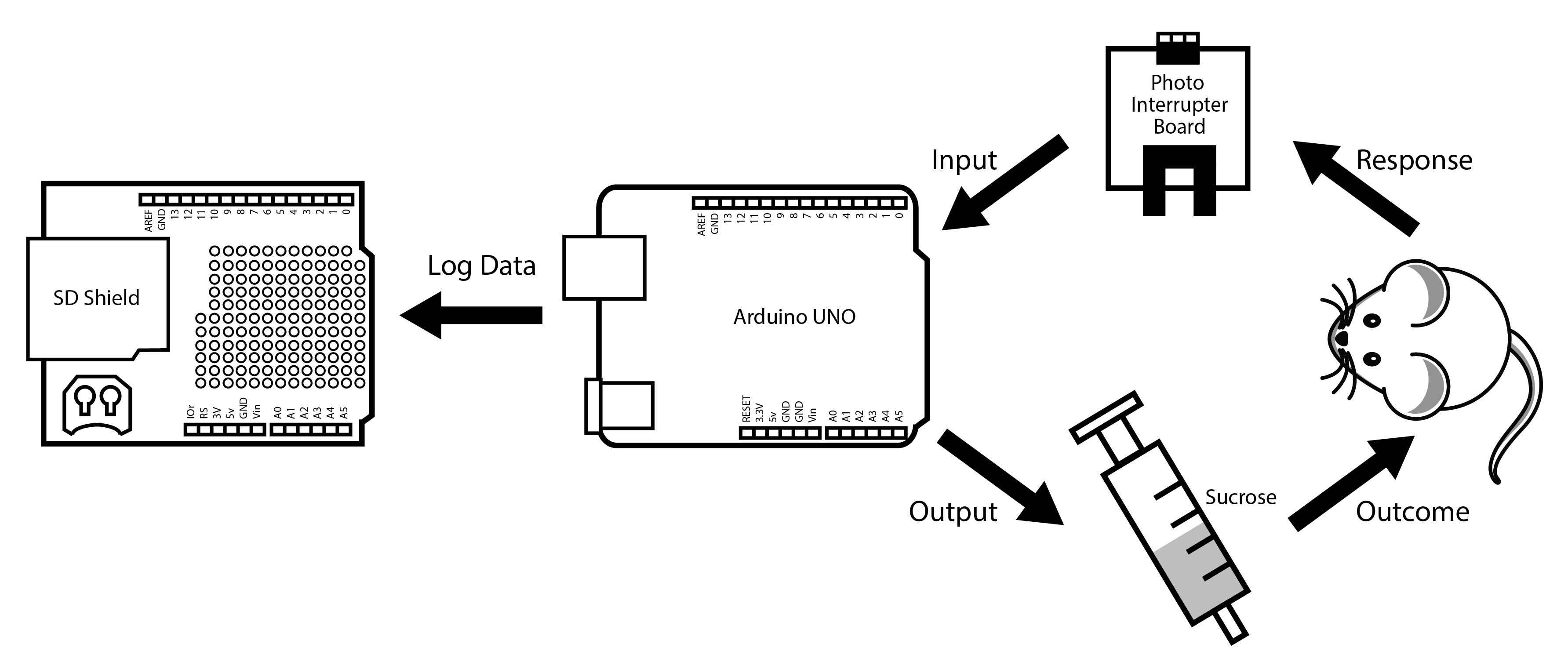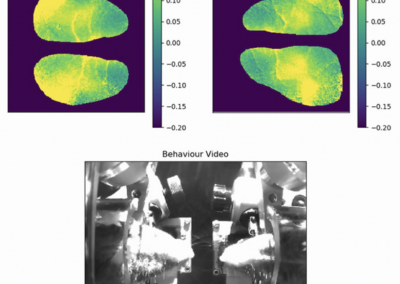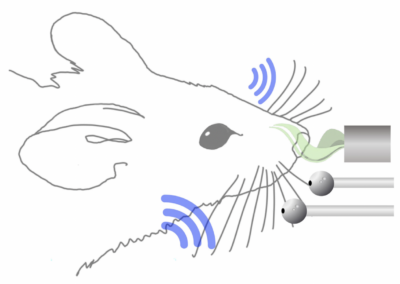; SoftwarThe Rodent Operant Bucket (ROBucket), designed by Dr. Alexxai Kravitz and Kavya Devarakonda of the Eating and Addiction Section, Diabetes Endocrinology and Obesity Branch, NIDDK, is an inexpensive and easily assembled open-source operant chamber, based on the Arduino microcontroller platform, that can be used to train mice to respond for a reward. The apparatus contains two nose pokes, a drinking well, and a solenoid-controlled sucrose delivery system. The chamber can easily run magazine training, fixed ratio and progressive ratio training schedules, and can be programmed to run more complicated behavioral paradigms. In their 2016 paper, “ROBucket: A low cost operant chamber based on the Arduino microcontroller,” Kavya Devarakonda, Katrina P. Nguyen, and Alexxai V. Kravitz validate ROBucket by demonstrating its application in an operant conditioning paradigm, as well as, detail the hardware comprising ROBucket, and the flexible software controlling it. Further documentation of this device can be found on the NIDDK website, where Dr. Kravitz and his lab share ROBucket construction instructions, ROBucket design files, ROBucket source code, and 3D printing design files. This research tool was created by your colleagues. Please acknowledge the Principal Investigator, cite the article in which the tool was described, and include an RRID in the Materials and Methods of your future publications. Project portal RRID:SCR_021565; Software RRID:SCR_021610 Devarakonda et al. shared the designs, build instructions, and parts list in Behavioral Brain Research (2016). Read more about it and how they validated their device in their paper! A full description of the device, the rationale for it, and the background on it’s components is available on the ROBucket website, hosted by the National Institute of Diabetes and Digestive and Kidney Diseases. Files for 3D printing and other components of the project are available from this site. Check out what the Kravitz lab is up to now at Washington University, St. Louis.ROBucket: Rodent Operant Bucket


Read the paper

ROBucket website (via NIDDK)

Kravitz Lab website
Have questions? Send us an email!




